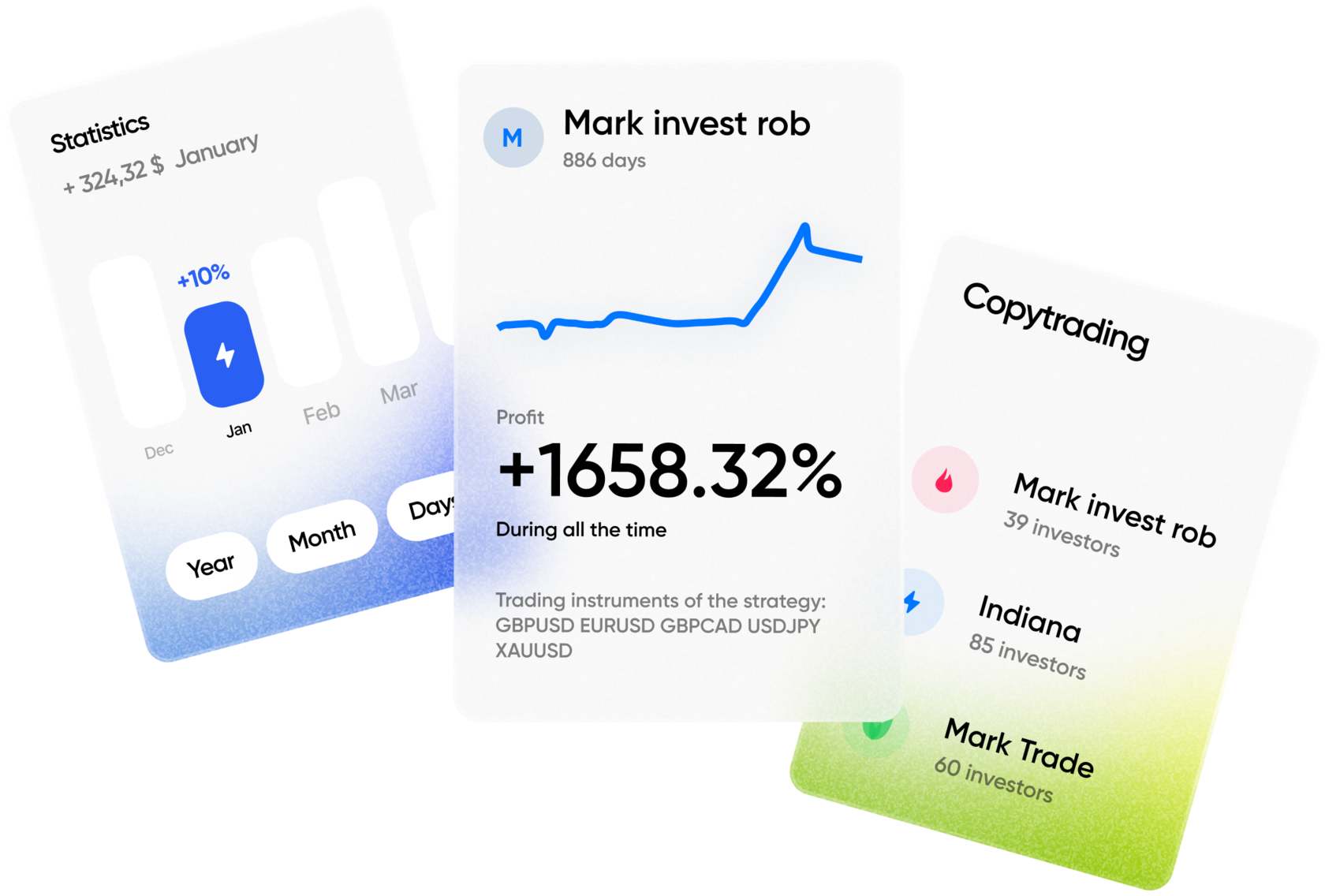The abbreviation ECN broker stands for the Electronic Communication Network broker. It acts as a financial third party to connect liquidity providers and traders in real time.
Investors may interact with different other market participants (like banks or hedge funds) without the need to work with a dealing desk. The idea lies behind using advanced electronic communication networks.
This is how a true ECN broker can deliver a transparent route for order execution. What’s more, it allows buying and selling assets to interact anonymously in real time. This setup offers a playing ground for both retail and institutional traders alike.
Oppositely to traditional brokers who may take the opposite side of your trade, ECN brokers act as an intermediary. It links investors with financial organizations charging a fixed commission for the services.
Whether you’re trading currency pairs with a forex ECN broker or engaging with commodities and indices, you get instant access to raw market spreads and deep liquidity, which can be crucial for experienced traders.
Key Takeaways
- ECN brokers provide direct access to financial markets via electronic communication networks.
- They ensure transparency, anonymity, and fast execution, crucial for high-frequency and professional trading.
- Traders benefit from tight spreads, although commissions and platform complexity are potential downsides.
- Platforms like MT5 ECN broker solutions offer real-time pricing and smart order routing.
Understanding ECN Brokers
ECN forex broker is to bridge the gap between the market and investors. Instead of filtering your orders through an internal dealing desk, the broker ECN model sends them directly to the interbank market or a liquidity pool the involves different types of financial institutions.
This structure not only fosters transparency but also removes potential conflicts of interest that arise when brokers profit from their clients’ losses. Traders see real-time market prices derived from multiple sources, and all participants compete on equal terms.
Moreover, ECN brokers usually use Straight Through Processing (STP), meaning your orders are processed automatically without human interference. This results in faster executions and less slippage, which is critical for traders using scalping or news-based strategies.
Understanding the Electronic Communications Network
At the core of this brokerage model is the Electronic Communications Network (ECN)—an automated system that matches buy and sell orders for securities. Think of it as a digital meeting place where financial institutions, retail traders, and market makers converge to transact without needing a middleman.
This ecosystem operates beyond regular trading hours, supports anonymity, and ensures that all orders are matched based on price and time priority. Orders are submitted into the ECN order book, and when a match is found, the trade is executed instantly.
Because of this real-time interaction between multiple participants, ECN trading reflects true market sentiment, free from the manipulations often associated with dealing-desk brokers.
Benefits of Electronic Communications Networks
These are the main reasons why traders should consider ECN brokers:
- One of the biggest draws of using an ECN broker is the tight spread. Since quotes are aggregated from multiple liquidity providers, you get to trade on the best bid and ask prices available in the market.
- Another major benefit is execution speed. Orders are processed in milliseconds, giving traders an edge—especially in volatile markets.
- Anonymity is also crucial. Whether you’re a small retail trader or a large institutional player, your orders are treated equally, and your trading intentions remain private.
- Perhaps most importantly, ECNs offer transparency. You can view the depth of the order book, showing real-time information on market interest at different price levels, which helps in making more informed decisions.
Disadvantages of Electronic Communications Networks
Despite their advantages, ECN brokers are not without drawbacks.
- First, there’s the matter of commissions. Since ECN brokers don’t profit from spreads, they charge a fixed commission per trade, which can add up, particularly for active traders.
- Then comes the platform complexity. ECN platforms, such as the MT5 ECN broker, offer rich data and features, but can be overwhelming for beginners.
- And finally, market volatility. Because ECN pricing reflects actual supply and demand, spreads can widen dramatically during news events or low-liquidity periods. This unpredictability may be unsettling for less experienced traders.
What Is an ECN?
In simple terms, an Electronic Communications Network (ECN) is a digital system that connects traders directly with other participants in the financial markets. It facilitates peer-to-peer trading by removing intermediaries and offering an automated venue where orders are matched based on best available prices.
This decentralized structure promotes fairness and minimizes manipulation, making ECNs a preferred option for those seeking a true ECN broker experience.
How Does an ECN Work in Financial Markets?
In the financial world, an ECN acts like an intelligent, neutral party that constantly scans for matching orders. For instance, if you’re looking to buy EUR/USD at 1.1050 and someone else wants to sell at that price, the ECN matches the orders and executes the trade—often in milliseconds.
The system aggregates liquidity from various sources—banks, hedge funds, retail traders—and presents real-time bid/ask quotes to users. This results in a dynamic, transparent pricing environment, which is particularly attractive for high-volume or algorithmic traders.
In short, ECNs empower the forex ECN broker and their clients to participate in a global marketplace with minimal interference and maximum clarity.
How Does an ECN Differ from a Traditional Stock Exchange?
While both ECNs and traditional exchanges facilitate the trading of assets, the way they operate is fundamentally different.
Traditional stock exchanges, such as the NYSE, operate through centralized floors where human brokers and specialists conduct transactions, often via open outcry or scheduled auctions. These systems can involve delays, hidden fees, and potential conflicts of interest.
On the other hand, an ECN is fully electronic, decentralized, and anonymous. It allows for faster execution, real-time pricing, and access to global liquidity at any hour. In essence, ECNs eliminate the inefficiencies of traditional exchanges and empower traders with more control.
What Types of Assets Can Be Traded on an ECN?
An ECN broker offers a broad range of tradeable instruments, catering to both retail and institutional needs.
Among the most common are:
- Currency pairs like EUR/USD, GBP/JPY, or USD/CHF are heavily traded on forex ECN broker platforms.
- Many ECNs support equities, especially those listed on major global exchanges.
- Precious metals like gold and silver, as well as oil and agricultural products.
- Contracts for difference (CFDs), options, and other synthetic instruments.
Because ECNs offer access to multiple liquidity pools, they are suitable for virtually any asset type, depending on the broker’s infrastructure.
What Are the Main Features of an ECN Platform?
Trading with a best ECN broker gives you access to a platform packed with professional-grade tools and features.
They are as follows:
- Real-time visibility into the order book, showcasing all active buy and sell orders.
- Fast execution speed, ideal for high-frequency strategies.
- No dealer intervention; orders are routed directly to liquidity providers.
- Unlike fixed spreads, ECN spreads fluctuate based on market conditions, offering tighter prices during high liquidity.
Platforms like MT5 ECN broker solutions combine all these features in a user-friendly interface, making them ideal for both advanced traders and those ready to take their trading to the next level.
The Bottom Line
Trading with a true ECN broker opens the door to a more transparent, fair, and efficient way of participating in the global markets. While it requires a learning curve and comes with certain costs, the benefits in speed, pricing, and trustworthiness often outweigh the drawbacks for those serious about their trading journey.







